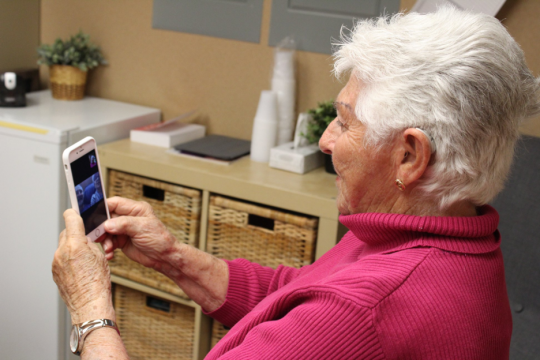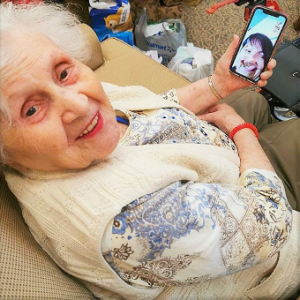
Thousands of Canadians fall prey to fraud every year. However, with some basic understanding of how scam artists work, you can avoid fraud and protect your hard-earned money.
In Part 1 of our Senior Safety series, we identified the Scams that Every Senior Must Know About. Read on for some tips on how to protect yourself from fraudsters and what to do if the unthinkable happens.
Protect Yourself from Fraud
Scams succeed because they look like the real thing and catch you off guard when you’re not expecting it. Scammers are getting smarter and taking advantage of new technology, new products or services, and major events like Covid-19 to create believable stories that will convince you to give them your money or personal details.
One of the best ways to protect yourself is to be educated and trust your instincts.” says Constable Mischa Semler of the Edmonton Police Service. And remember, “If something sounds too good to be true, it probably is”.
Scam Calls
When it comes to calls coming from strange numbers, police recommend that you always confirm who you’re talking to!
According to Cst. Semler, the perpetrators of scam calls typically don’t give people the opportunity to ask questions.
“Just ask questions. You always have the right to ask questions. Make sure that you’re clear on who is calling. If they claim to be calling from your bank, just say, ‘I can’t speak right now – I’ll call my bank back’ and hang up. Don’t call the number that they called from, call your own financial institution directly.”
It’s okay to hang up, take your time, question it, then contact the institution directly to confirm the facts. “Be reassured”, she says, “nobody – not a financial institution or the CRA – nobody is able to do something to you just because you hang up the phone.” Cst. Semler also recommends familiarizing yourself with this and other types of scams by reading The Little Black Book of Scams. It is published by the Competition Bureau Canada in multiple languages.
“It’s important to recognize when your emotions are being played upon.”
To protect yourself from falling victim to the Grandparent Scam (also known as an Emergency Scam), set up a Family Word or Safe Word that no one else would know. That way you can confirm that the caller is actually a child or grandchild.
11 Ways to Keep Yourself Safe
Know who you’re dealing with. If you’ve only ever met someone online or are unsure of the legitimacy of a business, take some time to do a bit more research.
Do not open suspicious texts, pop-up windows or click on links or attachments in emails – delete them: If unsure, verify the identity of the contact – don’t use the contact details provided in the message sent to you, do an independent search.
Keep your personal details secure. Put a lock on your mailbox and shred your bills and other important documents before throwing them out. Keep your passwords and pin numbers in a safe place. Be very careful about how much personal information you share on social media sites.
Keep your mobile devices and computers secure. Always use password protection, don’t share access with others (including remotely), update security software and back up content. Protect your WiFi network with a password and avoid using public computers or WiFi hotspots to access online banking or provide personal information. 
Choose your passwords carefully. Choose passwords that would be difficult for others to guess and update them regularly. Don’t use the same password for every account/profile, and don’t share your passwords with anyone.
Review your privacy and security settings on social media. If you use social networking sites, such as Facebook, be careful who you connect with and learn how to use your privacy and security settings to ensure you stay safe.
Beware of any requests for your details or money. Never send money or give credit card details, online account details or copies of personal documents to anyone you don’t know or trust.
Be very wary of unusual payment requests. Scammers will often ask you to use an unusual payment method, including preloaded debit cards, gift cards, iTunes cards or virtual currency such as Bitcoin.
Be careful when shopping online. Beware of offers that seem too good to be true, and always use an online shopping service that you know and trust.
Follow some basic safety practices at home. Always keep your door locked, and never leave your purse or wallet close to the door, out in the open. Don’t let strangers in through the front door (fobbed or buzz). Don’t carry all your ID on your person, only take the basics with you.
Be careful with door-to-door callers. Remember, whether in a retirement community setting or in your private home, you do not have to let people in. At All Seniors Care residences, you will be given a notice of any maintenance work. Also, you can ask that they arrive with a staff member that you trust. Just because they look official does not give them the right to enter your suite.
How to Report Fraud
If you do make a mistake – don’t be ashamed.
People often don’t report fraud because they are embarrassed that it happened to them. Or, they may have only lost a small amount of money and don’t want to go through the hassle of reporting it.
It is estimated that only five percent of fraud gets reported to authorities. This means that law enforcement agencies have a harder time staying ahead of the game, obtaining the necessary evidence to catch perpetrators, and warning the public about potential fraud.
Fraudulent or suspicious activity should be reported to the Canadian Anti-Fraud Centre, through its website at www.antifraudcentre.ca, or by telephone at 1-888-495-8501. Compile as much information and evidence as you can.
Cst. Semler also recommends speaking to someone you know and trust, “If you still feel threatened and have given out information, make sure you tell someone. Don’t be ashamed. Otherwise things can just keep getting deeper.”
You may also have to talk to your bank, the local police department, government organizations, and credit bureau. Make a to do list and take it one step at a time.
All Seniors Care Wants to Help
At All Seniors Care, caring is our number one concern. We want our residents to feel safe.
We know that awareness is the key to preventing these crimes. That’s why we invited police services to educate residents in our senior retirement community during the Summer Camp event.
If you don’t live at All Seniors Care, you can click here to learn more about us and our safe, supportive communities. If you’re interested in joining, take a look at the wonderful seniors residence in your city. It could be your new home.

